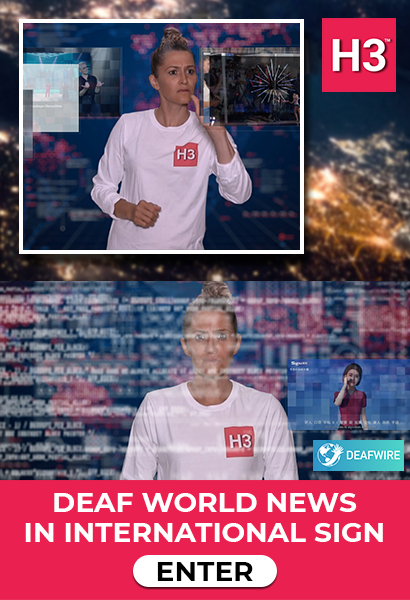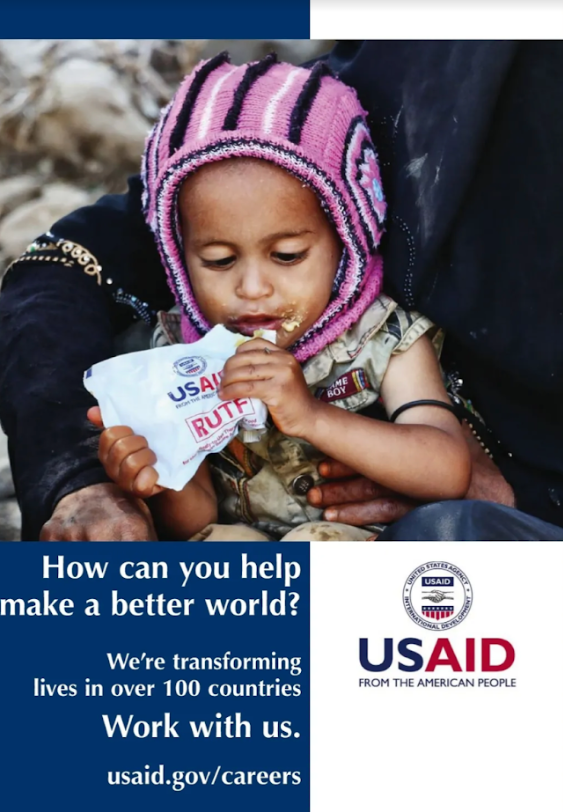Weekly DEAFWIRE news recaps
Full DEAFWIRE videos can be seen
at https://www.h3world.tv/shows-name/deafwire
Deaf students at Gallaudet University have teamed up with The Coca-Cola Company and spent eight months creating a sign name for the iconic brand, making it easier for Deaf people around the world to refer to Coca-Cola in sign language. This is the first time the company has worked directly with the Deaf community to develop a sign name. The project was said to be all about representation and inclusion, and making sure that Deaf people feel seen and respected in the branding world. The students say they carefully designed the sign to reflect Coca-Cola’s identity while making sure it’s easy to understand and use across different sign languages, not just American Sign Language (ASL).
The third “Researching the Deaf Community” (RDC) Conference is taking place this year in Moscow, Russia, over the weekend of October 17th - 19th, 2025. The conference will take place in the GES-2 House of Culture in Moscow. The conference will focus on the underrepresented groups within the Deaf community, such as Deafblind individuals, those who became Deaf later in life, and hearing parents of Deaf children. The conference is organized in partnership with the International Laboratory for Social Integration Research at HSE University. Participants will include researchers, students, professionals, and advocates from around the world.
DEAFDIGEST JOBS CENTER
Looking for a job? See Jobs Center for job openings.
* Victim Service Coordinator, Cedar Rapids, IA (Hybrid)
* Outreach Coordinator, Cedar Rapids, IA (Hybrid)
* Early Childhood Center Principal & Residential Care Professional - Framingham, MA
* Regional Reporter: Oceania
* Senior Writer/Associate Producer, Canada
DEAFDIGEST JOBS CENTER –
http://deafdigest.net/jobs-center/
On May 5th - 9th, the Deaf community in New Zealand celebrated New Zealand Sign Language (NZSL) Week. Many Deaf people were spotlighted on media throughout the week. One story of a Deaf tradesperson Gino Haynes was celebrated as an inspiring example of overcoming challenges and building a successful career. Based in New Zealand, Haynes uses NZSL as his first language and faced communication barriers early in his working life. His former employer, Hamish Frost, learned NZSL to support clear communication and a positive apprenticeship experience. That support helped Haynes become a qualified floor layer, and today, he owns his own business called G8 Flooring, proving that overcoming barriers is possible with determination and adaptability.
In Lima, Peru, the Congress has enacted Law No. 32298, amending Law 30364 and Legislative Decree 1318 to ensure that people with deafness or difficulties in verbal expression can file reports of family or gender-based violence with the assistance of Peruvian Sign Language interpreters. This law aims to ensure effective access to justice for this vulnerable group. Among its main provisions, the law mandates that the National Police of Peru coordinate with various public entities, such as the Aurora Program of the Ministry of Women and Vulnerable Populations, Conadis, the Public Ministry, and the Judiciary, to guarantee the immediate availability of interpreters when receiving complaints. This measure addresses the urgent need for inclusion and the respect of the rights of people with disabilities, who often face significant barriers when accessing essential services, especially in violent situations. The law also includes the mandatory teaching of Peruvian Sign Language in the curriculum of the Professional Training School of the National Police of Peru. This measure will allow future police officers to provide more inclusive, respectful, and efficient service, contributing to the eradication of violence and better care for people with communication disabilities. Finally, it states that within 60 calendar days, the Executive Branch must update the regulations of Law 30364 and Legislative Decree 1318 in accordance with the new provisions. The enactment of this law marks an important step toward a fairer, more equitable, and inclusive society where everyone, regardless of their communicative abilities, can fully exercise their rights.
In Medellín, Anderson Valle Rúa became the first Deaf sign-language-using political scientist in the country to graduate, earning his degree from the Pontifical Bolivarian University (UPB). He is a symbol of resilience, strength, and joy for life. Anderson Valle always dreamed of studying political science and learning about the world of knowledge. His deafness was never an obstacle to seeing life with optimism and appreciating each day. He recently graduated with a professional degree from UPB. Anderson expresses heartfelt gratitude for the presence of an interpreter in every one of his classes, which ensured his right to access higher education. He also thanks each of his teachers, who came to the classroom every day with love and discipline to share knowledge. “There are no impossible dreams, and limits exist only in the mind,” is the phrase that encapsulates this story of higher education.





